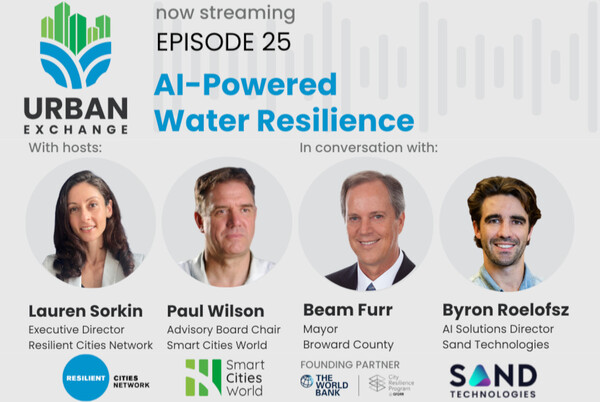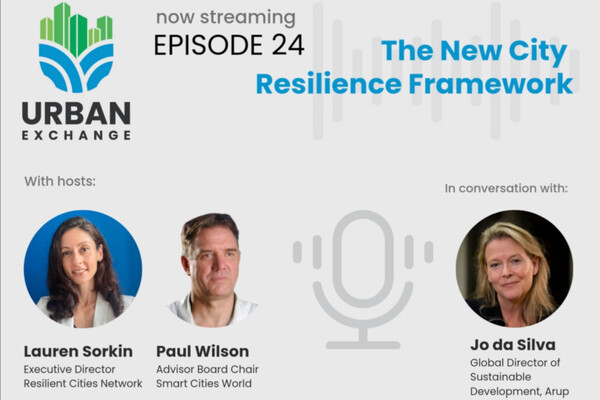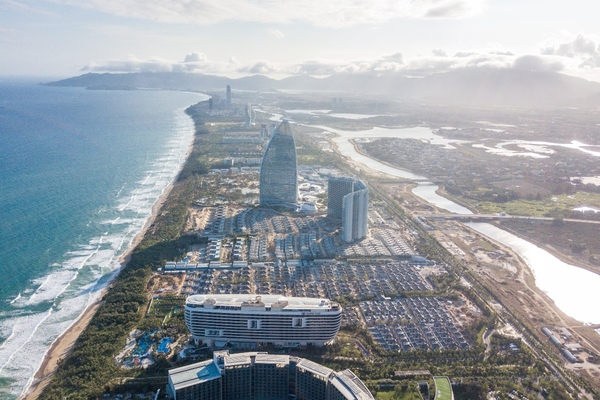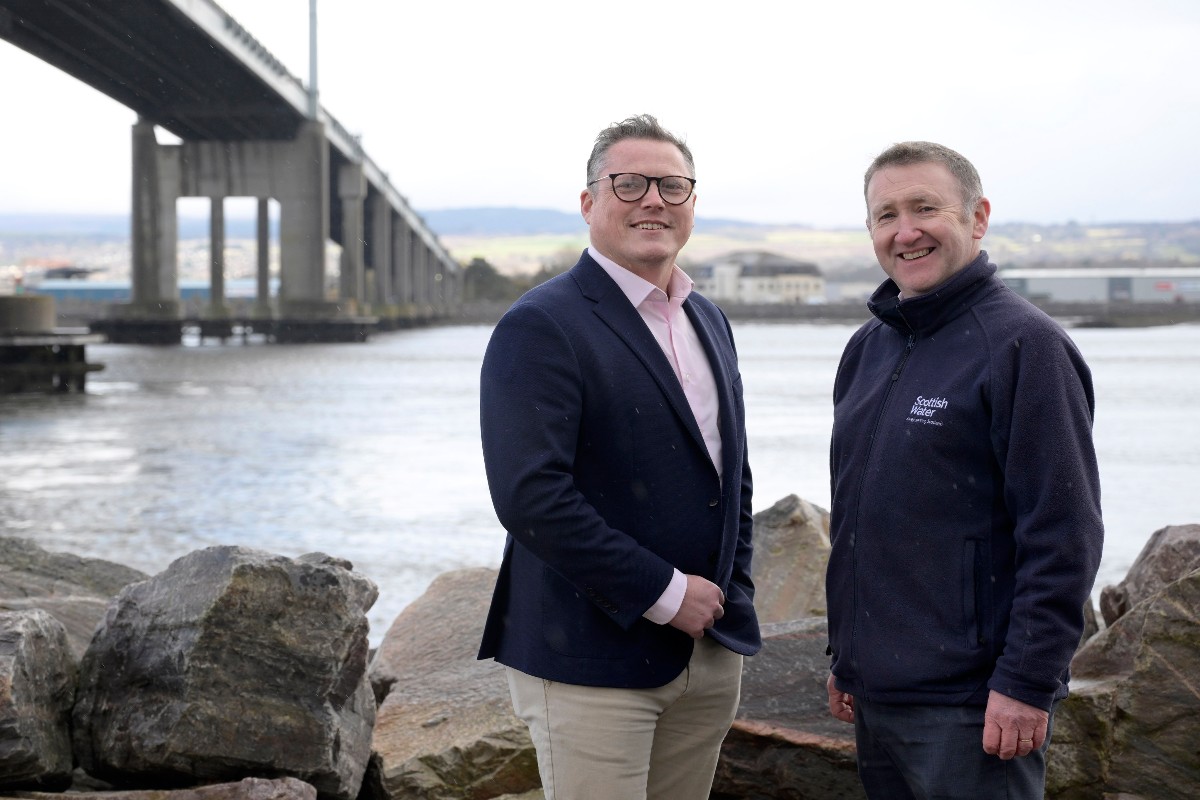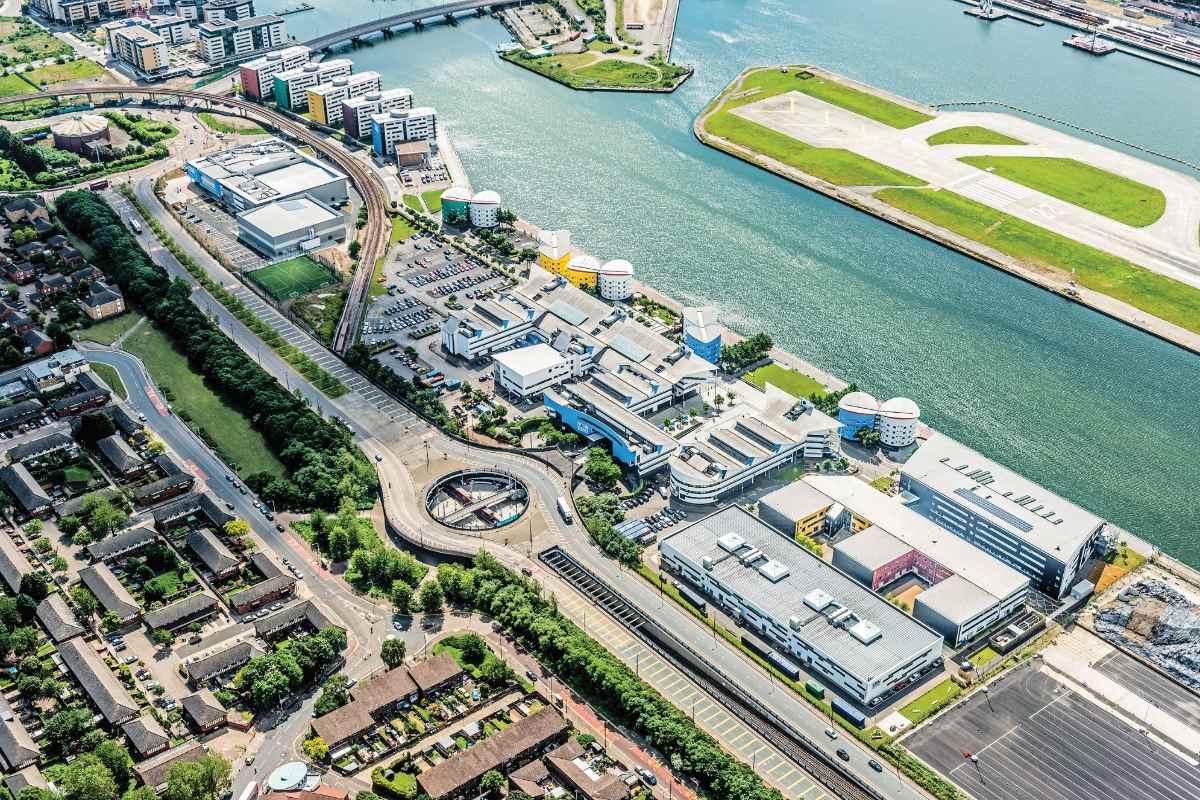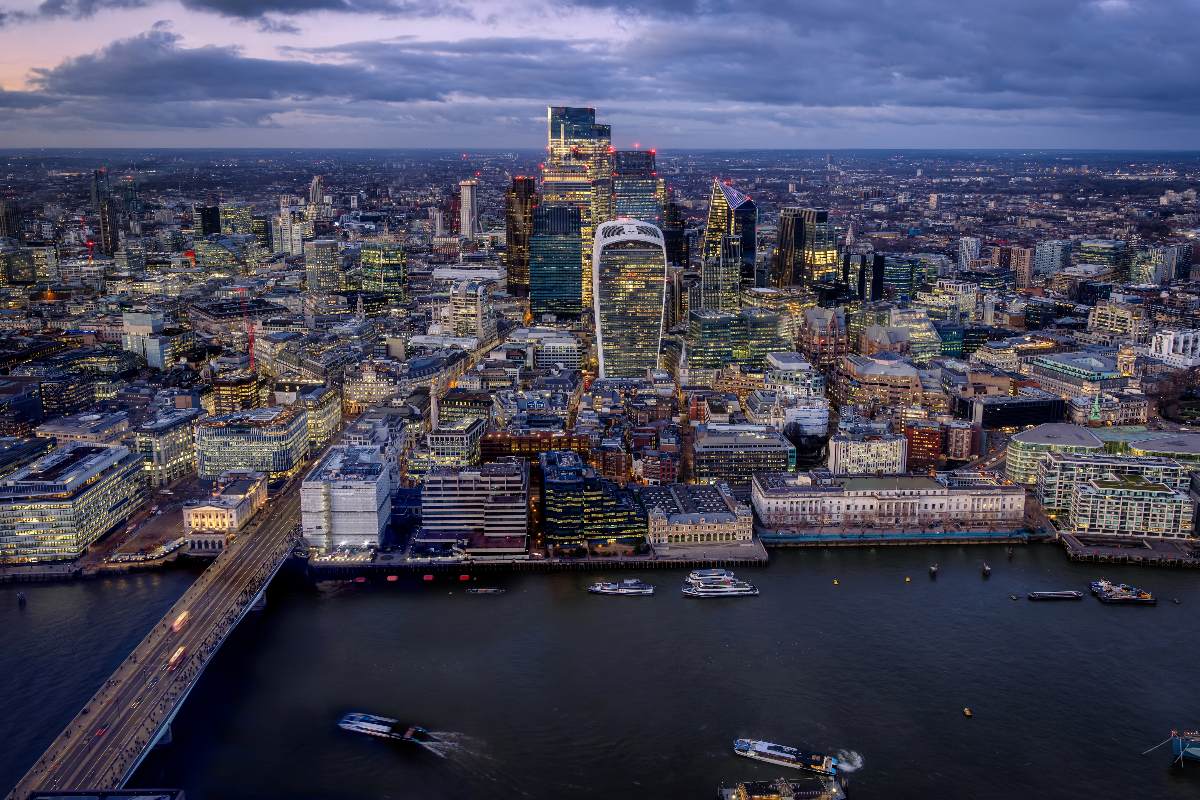Special Reports
SusHi Tech Tokyo 2024: experience ‘Tokyo 2050’ todaySponsored by The SusHi Tech Tokyo 2024 Showcase Program Executive Committee
COP26: 10 guiding principles to be reflected in the final agreement
Ahead of COP26, SmartCitiesWorld has written an open letter to international political leaders consisting of 10 major guiding principles that we believe should be reflected in any final agreement at the conference in Glasgow in November. Here, we break down those principles, addressing the challenges within each and the importance of cities receiving full backing from central governments as they look to a greener future.
The need for leadership in battling climate change has never been clearer, and that’s why SmartCitiesWorld is launching our open letter to international leaders attending COP26; to shine a light on 10 major principles that we believe are critical for leaders to support in the continued development of sustainable cities.
Written with the support of our advisory board – consisting of representatives from cities, NGOs and public/private sector organisations with urgent concerns about climate change – the 10 principles highlight different aspects of urban life and environments that directly affect citizens and city authorities:
- Inclusion: Including all citizens in decision-making drives the best results. The hallmarks of good city governance are participation, transparency, accountability and open data.
- Diversity: Encouraging diversity is a key principle in fostering city-scale resilience and sustainability.
- Resilience: Cities with a resilience strategy are better equipped to protect their citizens and environment from the worst effects of climate change.
- Wellbeing: City strategies measured by wellbeing indices deliver better long-term outcomes than cities driven by economic measure alone.
- Green Spaces: The cities that create and preserve green spaces for native trees and flora create bigger long-term resilience, wellbeing, and prosperity for their citizens and the bio-sphere.
- National Level Support: Cities committing to net-zero targets and a ‘just transition’ should be actively encouraged and supported by national government programmes to help nations achieve their ambitions.
- Infrastructure: The best cities give citizens access to infrastructure that provides physical safety, clean sanitation, waste disposal, clean air, a renewable energy supply, digital connectivity.
- Systems Thinking: Nations that equip leaders with systems thinking, including the ability to build on system synergies and circular economy principles, are most likely to meet their challenging net zero targets.
- Digital Technology: Cities using secure digital technology to measure and manage activity across city-systems are more able to bring about effective local change than those without the data.
- Healthy Transport: Prioritising active transport, then public transport, then private transport is the way to go.
Each principle is interconnected and interdependent, demonstrating the lengths that city authorities, backed by national governments, must go to in order to support the holistic and imperative climate action needed to prevent global disaster.
We’re asking city representatives, public sector bodies, the private sector, NGOs and educational institutes to pledge their support to these 10 principles by signing the open letter and help us to deliver the message to central governments attending COP26.
The letter has already gained the support of over 260 signatories – join them by following the link below.
I want to sign the letter and pledge my support to the 10 principles
“SmartCitiesWorld is proud to launch our open letter into the cities community at such a crucial point in the fight against climate change," says Chris Cooke, founder and CEO of SmartCitiesWorld. "The 10 principles that we and our advisory board members have outlined in the letter can be the foundation upon which smarter, greener cities are built for future generations.
“I’m grateful to the more than 260 cities and organisations that have already pledged their support and would encourage cities and organisations to join the signatories and give their backing of the principles. Our cities are on the front line now when it comes to the climate action governments pledge, but it’s cities that will deliver. It is crucial that they get the support they need from national governments and international organisations – whether through funding, policy or otherwise – to make positive changes for citizens, and ensure that cities are safe, sustainable, prosperous and resilient.”

The principles
The need to shift the focus from climate change to climate action has never been so important. The goal of the open letter is to make governments aware of the key aspects that our readers and members believe are critical in building a sustainable future for our cities. Behind this is a simple, yet pressing, maxim: “Nations Pledge, Cities Deliver”.
The letter aims to demonstrate broad support for the national backing of its 10 principles for cities. National-level support is therefore an essential part of the principles. Pilots, programmes and policies rolled out by central governments will be crucial in ensuring that cities are able to take the action they need on an individual basis for their communities. The specifics of challenges faced in every geography will be different, and central governments must react in a way that shows there is no one-size-fits-all solution.
As Paul Wilson, chair of the SmartCitiesWorld advisory board and chief business officer at Connected Places Catapult, says: “My hope for the open letter is that it prompts national leaders and policy-makers to see the pragmatism of empowering city leaders so they can proactively design the day-to-day flow of their cities, their built infrastructure and green spaces, and the mix of their local economies. This is the best way to mitigate and prepare for the worst effects of climate change over the coming decades.”
In the last 18 months, we’ve clearly seen that the implementation of digital technology in our urban environments is only a means to end, not the end itself. As a focus of the principles, these technologies are an important tool and are responsible for the data and analysis that are leading to more effective decision-making for city authorities, as urban spaces become better connected.
However, no city can be considered truly “smart” without putting its citizens’ wellbeing at the heart of its policies and objectives – hence the presence of inclusion, diversity and wellbeing as key principles. Without engagement from citizens in what city authorities want to achieve in the battle against climate change, the task becomes exponentially harder.
Asked whether any one principle is tougher to implement over the others, Michael Lake, CEO of Leading Cities, explains: “Each principle is important, and each has its own unique set of obstacles, roadblocks, opposition and challenges. However, the principle posing the biggest challenge for cities is inclusion. On the surface, involving citizens in the decision-making process is easy and requires more will and awareness than specific obstacles. The reason this principle is the most challenging is because so much of the work that needs to be achieved requires individuals to change their own personal behaviours.
“We, as a species, are averse to change, we avoid it at all costs, and yet the real challenge we as a global society have is to change our collective behaviours. We cannot rely on governments alone, we cannot expect that scientists will figure this out, we all must accept our role as both part of the problem and a major part of the solution.”
At the heart of sustainability challenges is resilience and how well-equipped cities are to protect their citizens. Resilience is a core principle in the open letter, as we look to draw the attention of central governments to the challenge of ensuring that cities aren’t only resilient, but also that, in time, they can prosper with the right support.
In support of this principle, CEO of the Resilient Cities Network, and SmartCitiesWorld advisory board member, Lauren Sorkin, explains: “As the leader of the premier global city network advancing urban resilience, as well as a professional with two decades of service working in cities around the world, I can attest that those cities with a resilience strategy are indeed better equipped to protect their citizens from the worst impacts of climate change. Further, cities with an appointed chief resilience officer (CRO) are in an optimal position to advance the systemic actions necessary to build urban resilience.”
Unlocking citizen engagement is key, too, and it takes investment in infrastructure, green spaces and city services, such as transport, to achieve that. These three aspects each have their own principle dedicated to them. Encouraging behavioural change and earning buy-in on climate action from citizens is as much about what they can see changing around them as anything else. Hence, the changing physical infrastructure and services around them is one of the biggest signifiers that cities are taking climate challenges seriously.
Bringing each of these principles together and analysing the interplay between them will prove to be the crux of making genuine progress in the battle against climate change – it is why systems thinking is the final principle to write about here. Without joined up analysis and thinking on the above, cities risk implementing disjointed, inefficient climate action strategies and, given time is of the essence, every second could count.
“Nations that equip city leaders with systems thinking, including the ability to build on system synergies and circular economy principles, are most likely to meet their challenging net zero targets,” explains Wilson.

The message for governments
Bringing each principle in the letter to the forefront of the COP26 conversation will come with its own set of challenges, but they must be faced head on.
As Leading Cities CEO, Michael Lake, explains, rapid action and investment are needed if our cities are to avoid further damage as a result of climate change: “Cities do not have the additional capacity or funding to combat the future impacts of climate change when they do not have the ample resources to address the current and destructive threats they are already experiencing. If central governments cannot make the investment funding available for solution creation, project implementation, skills training or plan development, then cities will not have the tools they need to meet the commitments made for a sustainable future.
“The investments cities should be making to develop more sustainable practices require tremendous financial resources at a time when city budgets have been adversely affected by the economic impacts of a global pandemic, when populations and therefore demands of city services continue to increase globally, and when the devastating effects of sea level rise, super storms are destructive to communities,” Lake continues.
In a similar vein, Paul Wilson explains that the now-weekly occurrences of extreme weather and their after-effects, must now spur urgent action from central governments: “At the same time as city leaders have been drawn into responding to problems, national leaders have been meeting on the climate change topic for decades, and thus far we can only conclude that they haven’t done enough,” he explains.
He adds: “The situation is getting rapidly worse, despite decades of warnings. It’s clearly time for national leaders to get pragmatic, swallow their pride and put the power to act as close to the problem as possible. It means much more empowerment of city leaders who live and work closely with their citizens. City leadership is more practical than national politics, and that’s what we need now – practical solutions and real-world action.”
Shifting the power to city leaders is a consistent theme here, and it’s easy to see a common thread throughout the 10 principles that the real responsibility lies with city authorities – once national leaders enable their city counterparts to take the action that is required for their specific communities.
“I am optimistic that efforts by dedicated city leaders across our network delivering solutions in communities provide an example,” says Sorkin. “To scale these efforts requires decision-makers at COP26 to collaborate fiercely and to spare no effort to safeguard our collective future. The time is now, and we must all continue to play our part in ensuring that, in our changing climate, we can build cities that are more sustainable, more equitable and safer for all.”
What comes next
If you’ve not yet pledged your support to the principles and become a signatory of the open letter, you can do so here.
With the campaign now launched, we will be running a supporting editorial campaign alongside the open letter. This will see the SmartCitiesWorld editorial team interviewing city leaders and partners for the next 10 weeks in the run-up to COP26 taking place in Glasgow – 10 weeks and 10 leaders to cover all 10 principles that constitute the letter. If you’d like to contribute, email lukea@smartcitiesworld.net.
With more than 260 signatories on board already, we believe the message to national governments is only becoming clearer, and the shout will only become louder with everybody that pledges their support.
SmartCitiesWorld urges each of its members to spread this message far and wide to help us help cities garner the support they will need moving forward to battle back against climate change, and create a green future for generations to come.
Remember, at COP26, while nations pledge, it will be cities that must deliver.






